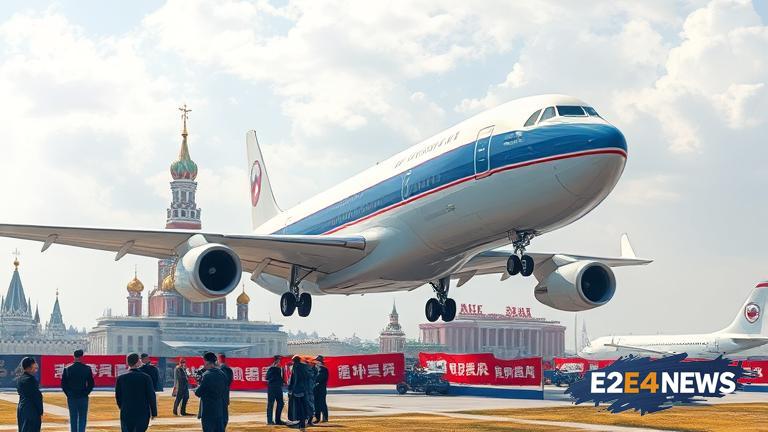In a move that is expected to bolster economic and cultural ties between Russia and North Korea, the first Moscow-Pyongyang passenger flight in decades has taken off. The historic flight, operated by North Korea’s state-owned airline Air Koryo, departed from Moscow’s Vnukovo International Airport and landed at Pyongyang’s Sunan International Airport. This development comes as a result of a long-standing effort by both countries to strengthen their bilateral relations. The resumption of direct flights is anticipated to facilitate travel for businesspeople, tourists, and diplomats, thereby enhancing cooperation in various fields. Russia and North Korea have been working to expand their economic ties, with a focus on trade, energy, and infrastructure development. The direct flights are also expected to promote cultural exchange between the two nations, allowing citizens to experience each other’s rich heritage and traditions. The Moscow-Pyongyang route is likely to attract tourists interested in exploring North Korea’s unique culture and history. Furthermore, the flights will provide a convenient and efficient way for business travelers to commute between the two capitals. The Russian government has been actively engaged in promoting trade and investment with North Korea, and the resumption of direct flights is seen as a key step in this direction. North Korea, on the other hand, is seeking to expand its international connections and diversify its economy. The direct flights will also enable the transportation of goods and cargo, further boosting trade between the two countries. The frequency and schedule of the flights are expected to be increased in the coming months, depending on demand. The development is also seen as a strategic move by Russia to strengthen its influence in the region and counterbalance the presence of other major powers. The resumption of direct flights between Moscow and Pyongyang is a significant development in the context of regional geopolitics. It is expected to have far-reaching implications for the economic and strategic landscape of the region. The move is also likely to be viewed with interest by other countries in the region, including China, Japan, and South Korea. As the situation continues to evolve, it will be important to monitor the impact of the direct flights on the region’s dynamics. In addition to the economic benefits, the resumption of direct flights is also expected to have a positive impact on people-to-people diplomacy between Russia and North Korea. The exchange of students, scholars, and cultural delegations is likely to increase, promoting mutual understanding and cooperation. The direct flights will also facilitate the movement of humanitarian aid and assistance between the two countries. Overall, the resumption of direct passenger flights between Moscow and Pyongyang marks a new chapter in the relations between Russia and North Korea, with significant implications for the region and beyond. The development is a testament to the growing cooperation and friendship between the two nations. As the world watches the unfolding situation, one thing is clear – the resumption of direct flights between Moscow and Pyongyang is a historic milestone that will have far-reaching consequences. The future of Russia-North Korea relations looks promising, with the direct flights serving as a catalyst for increased cooperation and exchange. In the coming years, it will be interesting to see how the relationship between the two nations continues to evolve and grow. The resumption of direct flights is a significant step forward, and it will be important to monitor the developments that follow. The direct flights will not only boost economic ties but also promote cultural understanding and exchange between the two nations. The move is a clear indication of the strong bilateral relations between Russia and North Korea, and it is expected to have a positive impact on the region as a whole.
